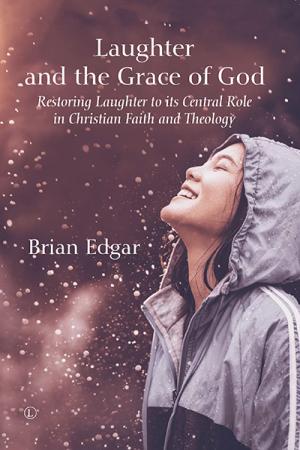Description
How does biotechnology touch on human destiny? What are its promises and challenges? In search for an answer, this book turns to the thought of Hans Jonas, one of the pioneers and founding fathers of bioethics. The continued relevance of his ideas is exemplified by the way Jürgen Habermas applies them to the current debate. The chief promise of biotechnology is to increase our freedom by overcoming the limits of the human condition. The main risk of biotechnology, as both Jonas and Habermas see it, is to diminish or outright abolish our capacity for responsibility and morality. It is argued that the greater freedom is not simply freedom from constraints but freedom for our destiny: the freedom to be the benevolent, responsible, and spontaneous authors of our lives, capable of communion and love. The touchstone for evaluating any biotechnological procedure has to be this greater freedom.
About the Author
Stephan Kampowski is Associate Professor of Philosophical Anthropology at the Pontifical John Paul II Institute for Studies on Marriage and Family in Rome. He is the author of Arendt, Augustine, and the New Beginning: The Action Theory and Moral Thought of Hannah Arendt in the Light of Her Dissertation on St Augustine (2008).
Contents
Foreword by Stanley Hauerwas
Acknowledgments
Introduction
Freedom, Technology, and Destiny
The Context and Procedure of Our Study
1. Hans Jonas’ Philosophy of the Organism
Toward an Ontology of Life
Panvitalism
Dualism
Idealism and Materialism
Jonas’ Attempt at a Solution
The Fundamental Characteristics of the Organism
Metabolism and Freedom
Natural Teleology
An Appreciation of The Phenomenon of Life
Maintaining the Specific Difference between Humans and Animals
The Possibility of the Soul’s Survival after Death
The Ontology of Life and the Problem of Death
The Organism and Love
2. Jonas’ Philosophy of Responsibility
Analysis of the Modern Predicament and Justification for the Need of a New Ethics
The New Categorical Imperative and Its Foundation
Logical Coherence?
Rights?
An “Ontological” Argument
Being, Purpose, and Value
Responsibility
Some Practical Principles of the Ethics of Responsibility
The Recognition of Ignorance
The Exclusion of the Va-banque Game
A Heuristics of Fear
Jonas’ Critique of Utopianism
The Identification of the Utopian Ideal
The Feasibility or Practical Achievability of the Utopian Ideal
The Desirability of the Utopian Ideal
Concluding Remarks on Utopia: The “True Human Being” Is Always There Already
An Appreciation of The Imperative of Responsibility
The Relation between the Sheer Existence and the Good Existence of Humanity
The Notion of Responsibility
3. Jürgen Habermas and Genetic Enhancement: Jonas’ Contribution to the Contemporary Debate
Habermas’ Life and Thought
The Basic Argument of The Future of Human Nature
Some Presuppositions
The Distinction between Therapy and Enhancement
Habermas and Jonas: The Question of Domination
Genetic Determinism?
Habermas and Jonas: Genetic Engineering vs. Education
Dependence as Part of the Human Condition
Excursus: The Question of Artificial Procreation
Habermas’ Response to Objections
Concluding Remarks
Conclusion: A Greater Freedom
Bibliography
Endorsements and Reviews
A Greater Freedom is an excellent and timely introduction to the thought of two eminent philosophers and their work on biophilosophy, bioethics, and biotechnology: Hans Jonas and Jürgen Habermas. Stephan Kampowski enters into an astute dialogue enriched by other important interlocutors (Spaemann, Arendt, Kass) and is deeply guided by the theology of love. A most instructive and rewarding reading for those who want to grasp the boon and bane of biotechnology.
Reinhard Hütter, Professor of Theology, Duke University Divinity School
Kampowski shows the enduring relevance of Jonas’s thought for engaging the thorny challenges facing humanity today. Overall, the book provides the English-speaking bioethicist with an effective introduction to the German conversation. … Kampowski’s engagement with Jonas offers a promising way forward for addressing biotechnology.
Ian Clausen, in Reviews in Religion and Theology, Vol 24, Issue 4






